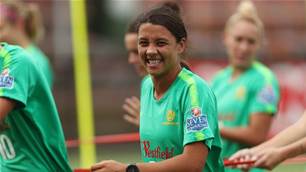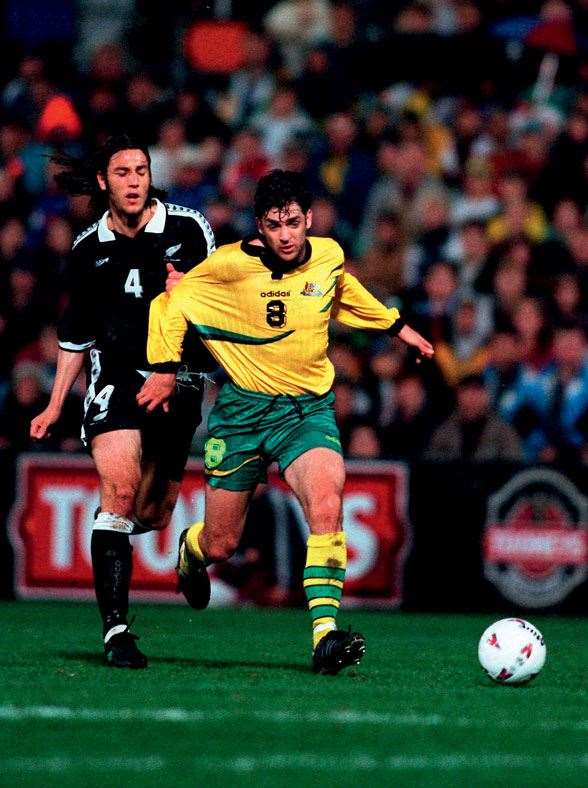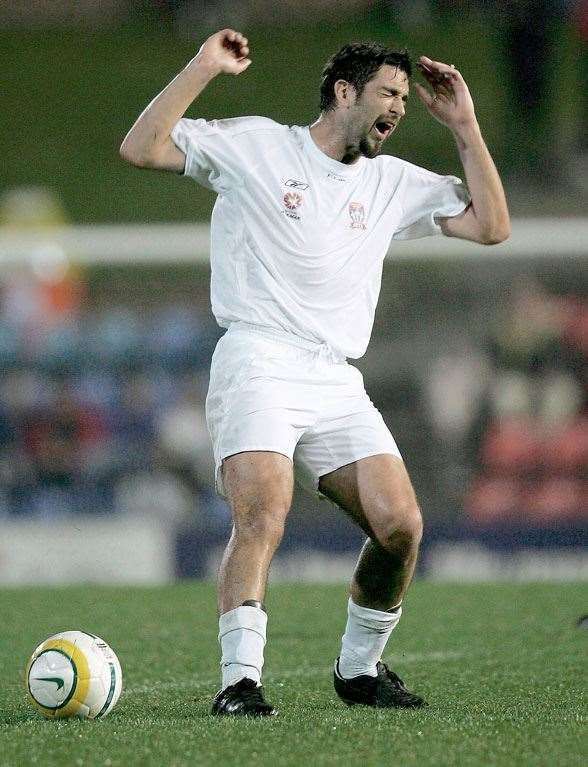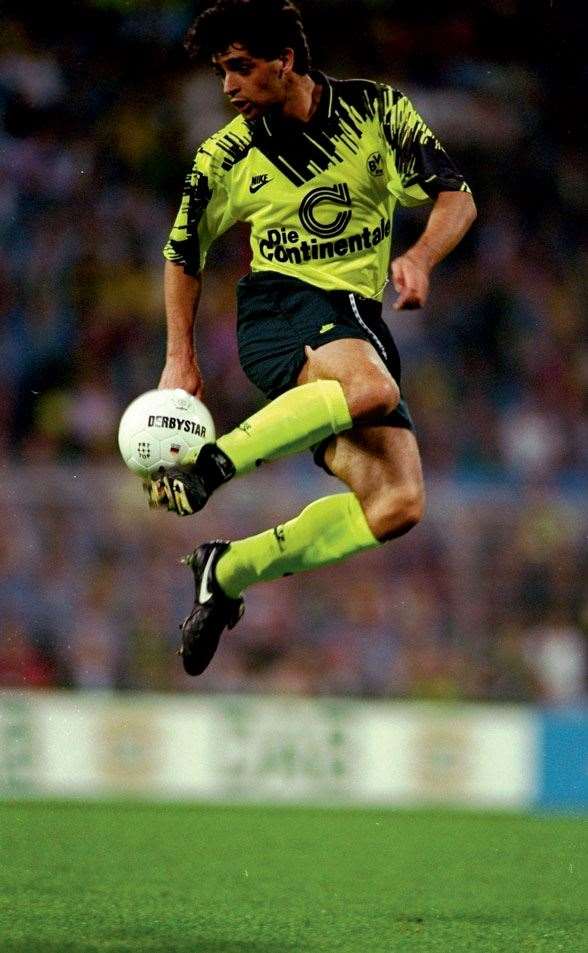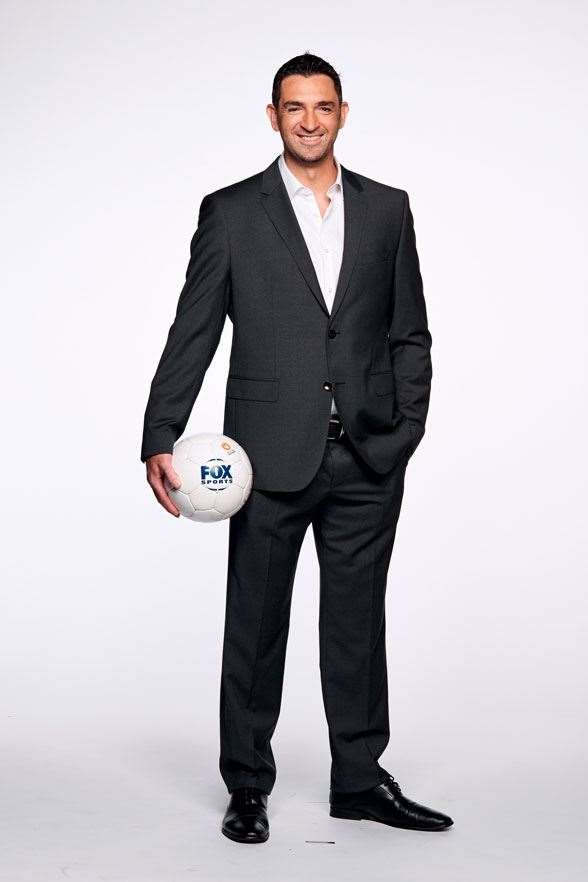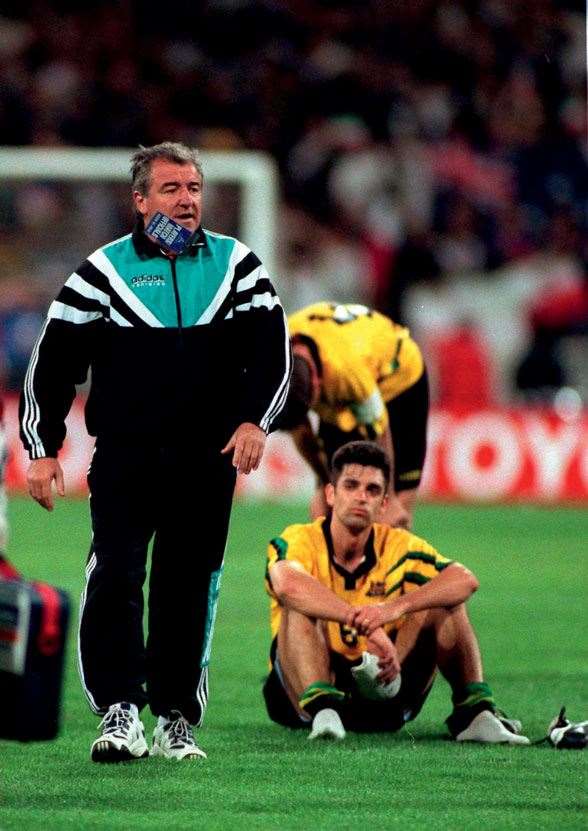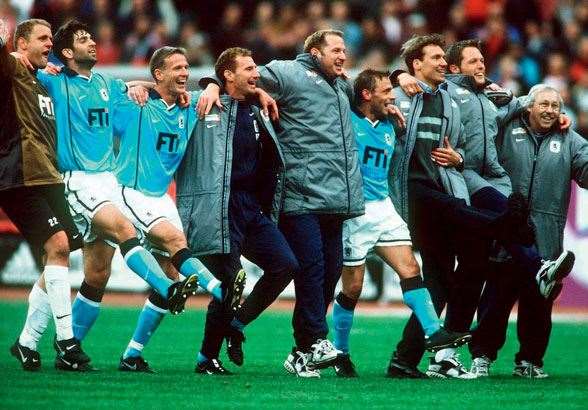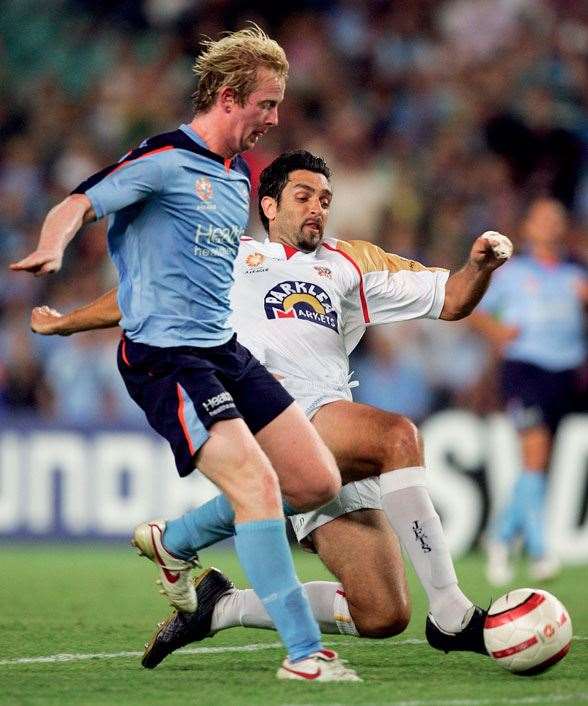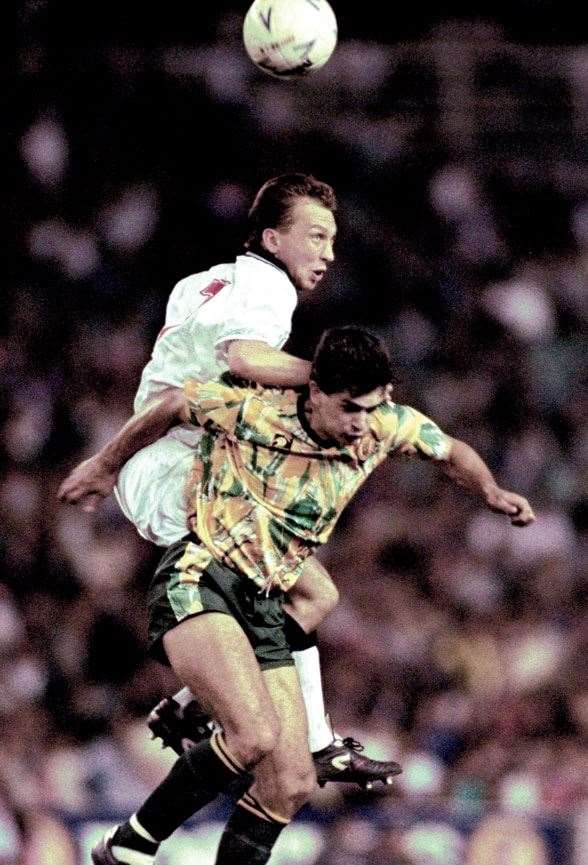That goal he scored against Holland - shot or cross?
NED ZELIC burst into all Australian sports fans’ awareness when he scored THAT goal against Holland to qualify us for the 1992 Barcelona Olympics – from what the commentator called the “most unbelievable angle” (look it up if you haven’t seen it). In the dying minutes of the match, he retrieved a through-ball, dribbled it to just inside the 18-yard box out on the right, then, barely half a metre from the byline, released a shot that went like a bullet past a stranded keeper on the near post. Whether a shot or a cross, it ranks among the greatest of all Australian goals – up there alongside the pearler he got in the first half, in fact: taking a square ball at full speed inside the Dutch half, a defender breathing down his neck, three perfect touches, then drilling it past the keeper. Seriously world-class.
Those deeds launched him onto the international stage for two decorated decades; his career has taken him all over the planet. His credentials would take pages to itemise: at home, from 1991 to 1999, Ned played 33 games for the Socceroos. In 2005-06, he captained the Newcastle Jets in the inaugural A-League season. And now he has joined the Fox Sports team as a panellist on its weekly football program Sunday Shootout. He’s also a forthright commentator on A-League matches – a hugely respected voice in the game. He took time out to chat with editor Graem Sims.
You were always quite the globetrotter. I make it you’ve played in Australia, Germany, England, France, Japan, Austria, The Netherlands and Georgia. Where did you enjoy playing the most?
I really enjoyed Germany. The time at Dortmund was excellent, though it was kind of ruined a bit with the injuries that came towards the end of my stay there. And then the four years that I spent in Munich, playing for 1860, that was a really good period – virtually no injury problems and I played a lot of European games as well.
The culture of the football there appealed to you?
Yeah, it did – just the way they went about things. They were just so professional. Just the different mentality. Going over as a kid, just after the Olympic Games in 1992, I quickly learnt what the Germans are all about. I remember I played my first game, I debuted at home, we won one-nil, and everyone’s patting me on the back and this and that. And then we had a mid-week game away, and I think we lost 4-1. And the bus trip home – it was played in Frankfurt and the trip back to Dortmund was about three hours and I’m just sitting there next to one of my team-mates and I saw that everyone was down and I was like, “Hey, don’t worry about it – let’s get ’em next time.” And I got the response: “Hey Zelic – be quiet.”
It was the “no one talks on the bus after we lose” sort of thing. It was amazing. Three hours. No one said a thing. It hit me then what sort of mentality they have and how they deal with losing. And when they win – I just love that thing as well: no one gets excited. It’s amazing. I remember we won a game 6-1; I had one of the best coaches in the world there at Dortmund, Ottmar Hitzfeld, who went on to coach Bayern Munich and won Champions League – this and that. And so we win this game and the next day we’re at training where we always had a 15-minute review of the game. And the first ten minutes was spent on the goal that we conceded! Like, ten minutes. Then a few minutes on what we did good, and then it was “Let’s go!” I really loved that mentality there. I see in youngsters today how quickly they get excited about winning games and playing well. And you think, “Okay, you haven’t achieved anything yet – keep your feet on the ground.” I really like that.
No doubt you’re watching a heap of football in your role with Fox Sports. Which league in world football do you prefer?
I’m watching a lot. I’ve always enjoyed those top four leagues. I obviously watch the EPL a lot. Bundesliga, too. Italian football I’ve always rated highly, and obviously Spanish. It’s hard to say one over another. It’s just that diversity of styles. The EPL is always exciting – it might not have the best-quality games, when you look at mid table/lower table teams, but it’s always kind of compelling at the same time. Germany has really come on in leaps and bounds – they’re playing really high-quality football there. And Spain has always been good when you look at the top teams.
That EPL excitement thing: do you reckon that’s got a lot to do with the configuration of the grounds over there – just the proximity of spectators to the players?
Exactly right. I only had a short spell there, but the closeness of the crowd brings a whole different atmosphere to the game, which lifts you as a player. Not just when you play at home, but away as well: it wasn’t a good period in my career with injuries, but I remember playing at the old Southampton ground, the Dell, and I went off for a few seconds because I copped a whack to my knee. I’m getting treatment on the sideline, and these Southhampton fans were like two metres away, and they’re SCREAMING at me. And I’m like, “Relax guys! You know? Gimme a break here!” (laughs)
Did we see that effect when the Western Sydney Wanderers met Sydney FC in round two and drew 41,000 to the SFS? It was great to see the crowd play a part there, don’t you reckon?
That’s for sure. But the Sydney derby is really easy to explain. It’s evolved into this West vs East thing ... and that’s what’s made it so special.
Are you seeing a marked improvement in our standards here? Are we at least more competitive than Georgia?
(Laughs) Well, you’d be surprised. Back then, three months into retirement, and I got a call – “Hey, come play in Georgia.” And I’m like, “I don’t know the place!” Went over and it’s a
great new adventure – I always enjoyed doing something different. And I was really surprised by the quality. There have been a lot of good Georgians who have played EPL and Bundesliga, so it was really good quality. With regard to the A-League, the quality has definitely improved. But in saying that, I think it depends a lot on the coaching as well and what sort of platform coaches give players to perform. Right now you’ve got a good number of coaches who like attractive, attacking football, so that obviously does a lot for the league.
If you were 20 all over again, would you be so keen to get yourself overseas? Or could you assure a young Ned Zelic that the A-League is strong enough to gain experience as a youngster?
Nah, still 100-percent: go overseas. Because we’re not going to kid ourselves – that’s where the best football is played and you come up against the best players in the world. There’s also obviously the financial aspect, which the A-League can’t compete with. As a young footballer, you get an opportunity, you have to take it. But the big thing really is that decision-making process – where you go, and going to a league that suits your style, and also getting the opportunity to play. So it’s not a case of taking the first offer that comes along. If there are options there, they really need to be analysed and well-thought through.
But we’re seeing young players being selected for the Socceroos squad from the A-League. That’s a great thing, isn’t it?
Definitely. For sure. It’s great to see that the opportunity is there for them if they’re performing well here on the A-League stage. But still, when it comes to the nitty-gritty and qualifying for World Cups and performing at World Cups, then I think gathering experience in those leagues overseas is just crucial. You know, I really hope that we can produce players – but we’re going through a bit of a dry patch. There’s also the selfish aspect as well: I’d love to see young Aussie players going over and blitzing it in the EPL or Italy or Bundesliga, which we’ve had in the past.
We DO seem a bit thin on the ground for next-generation superstars ...
Well, exactly. And it’s not just that we had Aussie players in those leagues – they were actually excelling in those leagues. That’s what we really have to aim for, producing the Kewells and Vidukas who went over and absolutely blitzed it. And hopefully we can produce those players in the future. There’s a team attitude towards football, which is great, and needed. But you always need those individual players who can provide that spark in games.
You could be describing yourself there, sir. There’s a pretty good school of thought that your career is under-appreciated by many Australians because you simply weren’t as visible on TV at home here every week.
Oh, I wouldn’t say that. When I was over there the Bundesliga wasn’t, as you say, visible, and that’s where I spent the most time – seven years in Germany. But we also had players back then as well in Italy – that was also a big league but also wasn’t very visible. The EPL is the most popular league here in Australia to watch, and I’ve got no issue with that at all. It’s great, post-career, that people still compliment you on your playing days. But it’s not something that I hope for or that I really need. I’ve always tried to keep my feet on the ground.
Well, we’re going to have the Asian Cup pretty visible here just around the corner. Can the Socceroos win it?
Well, it’s good that we’re talking about winning it, and that there’s an expectation to do that because it’s on home soil. Whether or not we have the quality to do that is a different question, and that’s the big challenge for Ange Postecoglou – people expect from him now because he’s already shown what he can do as a coach. He’s had this team getting results and playing good football at the same time. So those are the demands, and justifiably so. But in saying that there are going to be some other top teams here – South Korea, China, North Korea, who has always been a bit of an unknown but always produced some good-quality players. So it’ll be really interesting. A lot of these teams in Asia have caught up tactically and technically as well, so it’s up to us, basically. We’re going to have to show some good football.
We haven’t looked fabulous in the lead-up. Were you one of those people who saw our performance in the World Cup in Brazil as honourable losses? Or just losses?
Yeah, I looked at it from two perspectives. I thought we performed extremely well in those first two games where the expectation wasn’t high for us. So that was definitely impressive and something that gave you hope for the future. At the same time, you saw teams at the World Cup, like Costa Rica for example, that surprised – got out of a group with England, Italy and Uruguay where you think to yourself, “Wow, wouldn’t it have been great to be able to surprise as well?” It just shows that there are always opportunities in football. So it was disappointing, but there was some sort of hope there.
So, NOT hopeless. We haven’t been great in recent friendlies, either. Do we forgive the manager there for some tinkering? Or are we still relying on Tim Cahill too much to score?
Yeah, well, possibly. We’ve done so well in the past that all of a sudden to kind of stray away from relying on Tim is maybe a bit too difficult. It may take some time. And sure, you have to allow the coach to tinker and experiment. But I’ve always been against over-analysing friendlies because they’re just completely different to competitive matches. A different mental approach. And there is a lot of experimenting. At the same time, Ange the coach is new and we expect a lot, so we want to see progression as well, as there were a lot of disappointing performances under Osieck – we still qualified, but the expectation level has risen.
Any coaching ambitions of your own? Maybe the manager of the first A-League team from Canberra?
(Laughs) Yeah well, the junior development side has always interested me a lot. I was involved in doing some scouting as well when I finished my career, and I travelled a lot, and spent quite a lot of time in different countries, and I’ve always been especially interested in the young players here in Australia. I’ve been up at Coffs Harbour watching the state championships and written blogs about it. And I’ve got kids of my own, a boy as well, who plays ...
A bit of potential there?
Yeah! A bit scary, actually. He’s just turned eight. He’s young and aggressive and he loves to win. He’s very skilful and quick as well ... we’ll see what happens.
Australia boldly printed on his passport, I hope?
Yeah, for sure. I’ve spent time in the European summer doing stuff for a mate of mine from the Bundesliga who has a football school there, so I’ve spent time since ’08 helping him out coaching kids. I really feel that kids at a young age can learn a lot. I’ve seen it in my boy as well, and how important information is, and how kids soak it up really quickly. And that’s why I think we have to find a balance here in Australia. Sure, it’s meant to be fun for kids at that age, but there’s information that you can give them, actually coach them, which makes the game even more fun. It’s meant to be fun, and let’s not make it too serious, but there are things that kids pick up on quickly. Especially with the Young Socceroos not qualifying now for their World Cup, it’s a bit of a period we’re going through in Australia where we really have to find a balance. We want to hold on to this traditional winning mentality – the never-giving-up sort of thing. And not stray from that. But at the same time increase the technical level – produce players with this individual brilliance to be able to win games.
At that under-8s level, should they be keeping score in matches or not? The idea of winners and losers has been abandoned, hasn’t it? Where do you stand on that?
I think it’s no issue whatsoever – let them keep score. Kids do it anyway. And Aussie kids always want to win – you have to give them that platform. This mentality of performance over results, personally I don’t agree with it. You can’t just switch it on – you can’t expect them to turn up to tournaments where they have to win. You have to find that balance. I know from my experience overseas, that junior development in France where I spent time, and Germany as well, it’s fun, but it’s serious business as well.
And you see that’s a gap here in Australia?
Well, yeah. There are still some good things – they brought out a curriculum about how we want to play, and I think something like that is good for coaches at junior level who are forced to do it because no one else has got time. But it’s not that easy to produce a curriculum and produce world-class players. If it were that easy, everyone would just get on our website and just download it. You still need the coaches out there who are passing on good information.
Okay, I have to ask one last question: cross or shot?
Shot! (Laughs) I knew that was coming ...
Are you sick of people asking you that question?
No, I’m not. I’m not. But it was just one of those moments where you’re either a hero or you look like an absolute idiot. And luckily for me it went in.
Related Articles

One-on-one interview with Socceroos legend Zed Zelic
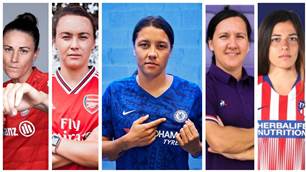
Matildas Abroad: COVID-19 Global Updates
